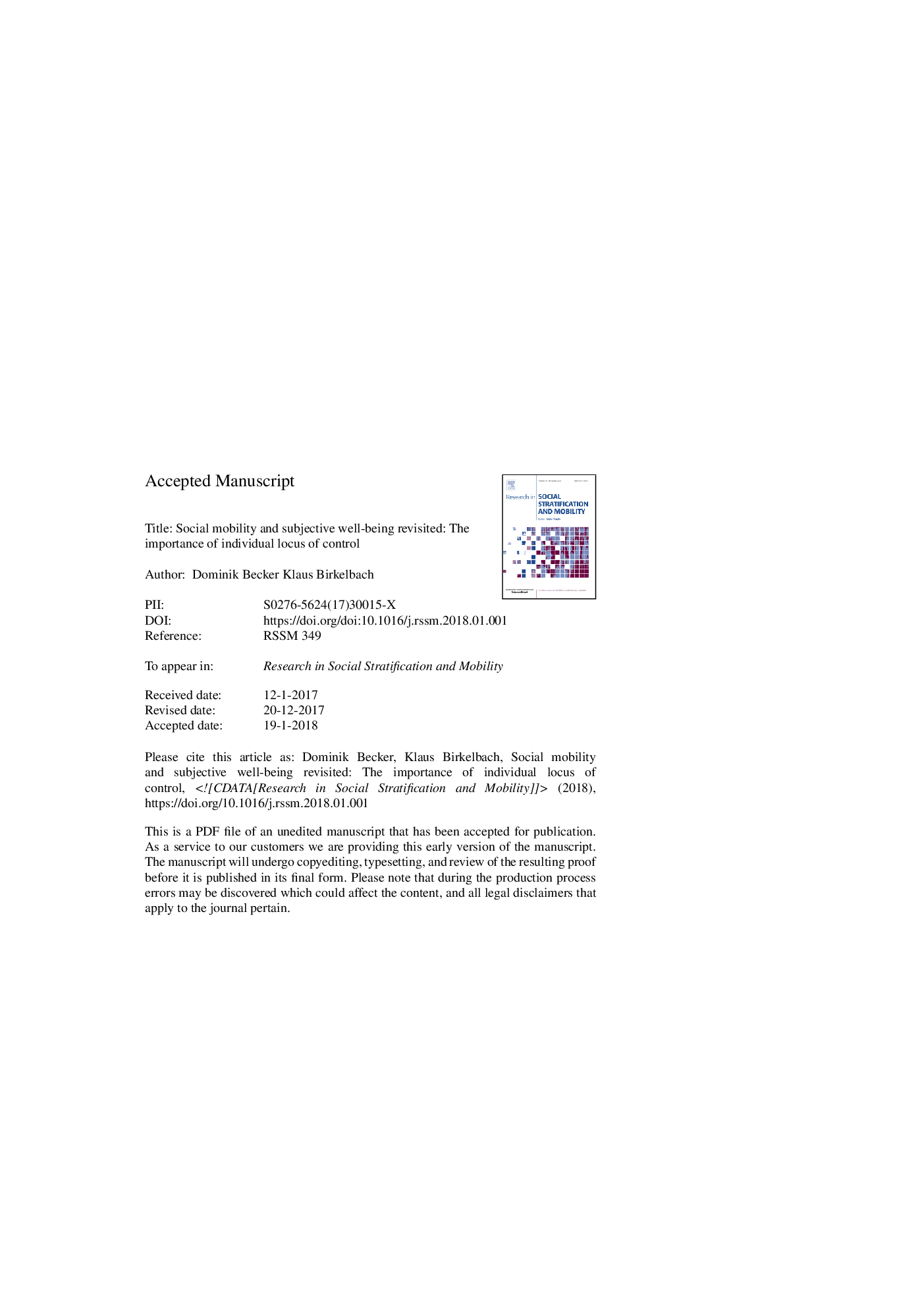ترجمه فارسی عنوان مقاله
تحرک اجتماعی و رفاه اجتماعی ذهنی: اهمیت کنترل فردی فرد
عنوان انگلیسی
Social mobility and subjective well-being revisited: The importance of individual locus of control
| کد مقاله | سال انتشار | تعداد صفحات مقاله انگلیسی |
|---|---|---|
| 121685 | 2018 | 66 صفحه PDF |
منبع

Publisher : Elsevier - Science Direct (الزویر - ساینس دایرکت)
Journal : Research in Social Stratification and Mobility, Volume 54, April 2018, Pages 1-20

